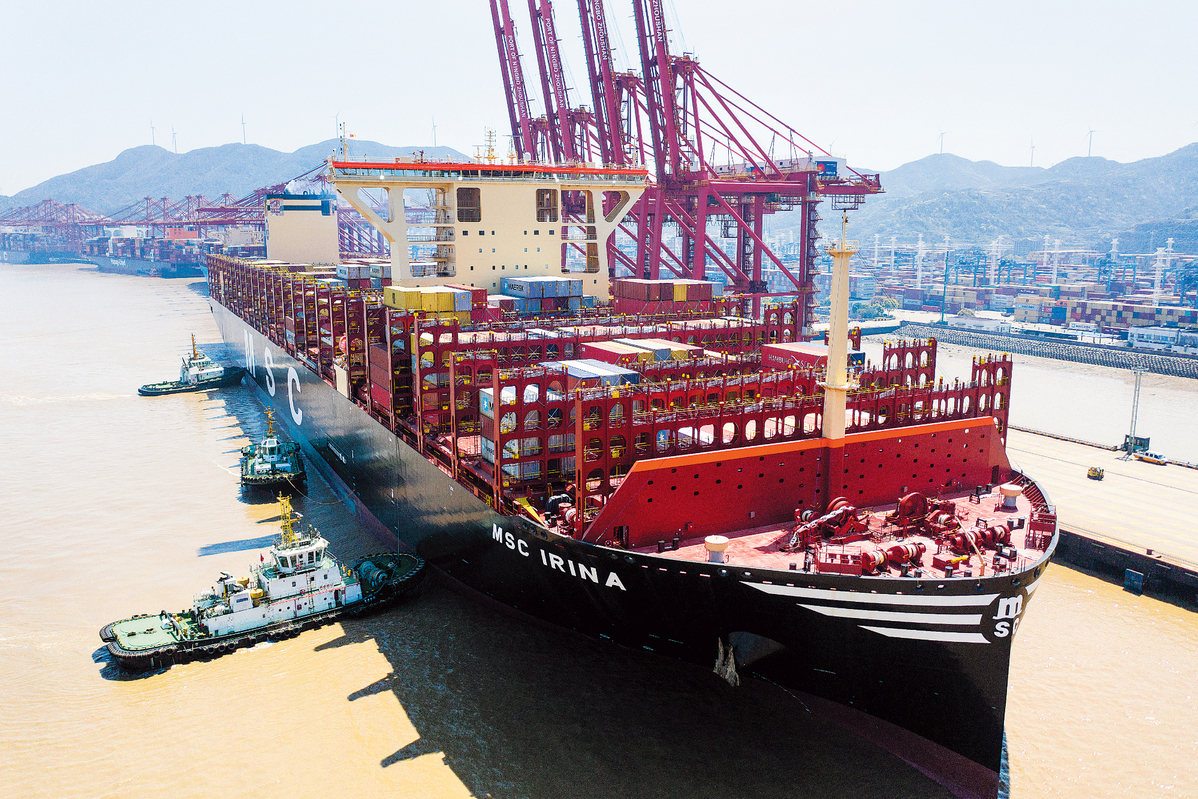Moves afoot to better align national, global product standards

China aims to further expand the application of international standards and key technical indicators in its product standards to more than 85 percent by 2025, government officials said on Monday.
This commitment seeks to furnish robust support for the cohesive development of both domestic and international trade, they said.
The government will facilitate the alignment and integration of trade regulations between domestic market-oriented companies and export-oriented businesses, promote the coordination of domestic and international trade standards, inspection and certification — as well as regulatory systems — to continuously enhance the conversion rate of international standards, said Sheng Qiuping, vice-minister of commerce, at a news conference in Beijing.
The State Council, or China's Cabinet, revealed a series of measures to speed up the integrated development of domestic and foreign trade last week to simplify regulations and remove obstacles for businesses to access both domestic and foreign markets.
The 18 measures in five areas have been designed to better align domestic and foreign trade rules and systems, including supervision, the convergence of standards, and facilitation of smooth domestic and foreign trade resource flows.
Sheng said the translation of standards into foreign languages, particularly in key sectors, will be strengthened. This will facilitate a more comprehensive global understanding of Chinese standards and help domestic manufacturers minimize costs linked to market transitions.
Lin Shaobin, head of the general operations department at the General Administration of Customs, said differences in standards, inspections and quarantines, and regulatory requirements among various countries and regions, pose challenges and bottlenecks to the integrated development of domestic and international trade.
Customs authorities will focus on market concerns and the needs of various businesses, and continue to excel in comparing, researching and evaluating foreign technical regulations and standards, especially those of developed countries, said Lin.
To advance the alignment and integration of domestic and international trade regulations, he said that the scope of acceptance of third-party inspection and testing results will be expanded.
Zhou Qiang, director of the department of market system development at the Ministry of Commerce, said the government's new measures will enhance the overall dynamism of China's foreign trade.
Market watchers said companies will quicken their pace of innovation to compete with established rivals in other parts of the world.
Jiangsu Runshi Light and Textile Industry Group Co Ltd, a Lianyungang, Jiangsu province-based toy and textile product manufacturer, saw a 10 percent year-on-year growth in export orders during the first 11 months of this year.
Since the beginning of this year, there has been a resurgence in demand for stuffed toys in overseas markets, said Yang Yaqin, the company's sales manager.
"However, there is a continuous elevation in the quality and safety standards required for products abroad," said Yang. "Ensuring compliance with these international quality and safety standards has, therefore, become our top priority."
With positive factors continuing to show up in the fourth quarter, China's foreign trade value reached 3.7 trillion yuan ($518.79 billion) in November, up 1.2 percent year-on-year, according to Customs data.
The implementation of the new prescribed measures will not only speed up the amalgamation of domestic and international trade, but also significantly contribute to reinforcing the overall economy, said Wang Jian, a professor of international trade at the University of International Business and Economics in Beijing.
Wang said that China's fast-growing cross-border e-commerce sector, backed by policy support and format innovation, will play a crucial role in bolstering the integrated development of both domestic and international trade.
China's foreign trade via cross-border e-commerce channels reached 1.7 trillion yuan in the first three quarters, up 14.4 percent year-on-year, the Ministry of Commerce said.
zhongnan@chinadaily.com.cn
Invest in China Copyright © 2026 China Daily All rights Reserved
京ICP备13028878号-6
 京公网安备 11010502032503号
京公网安备 11010502032503号





